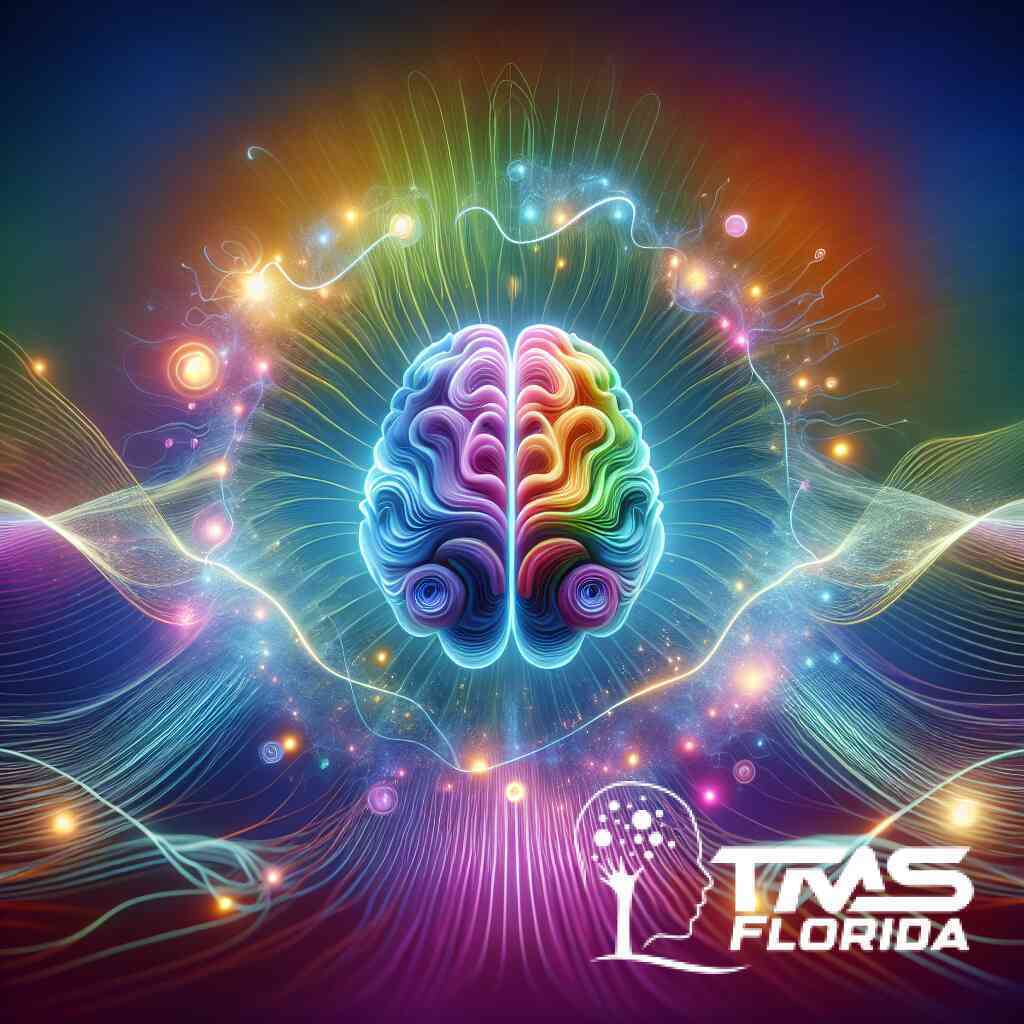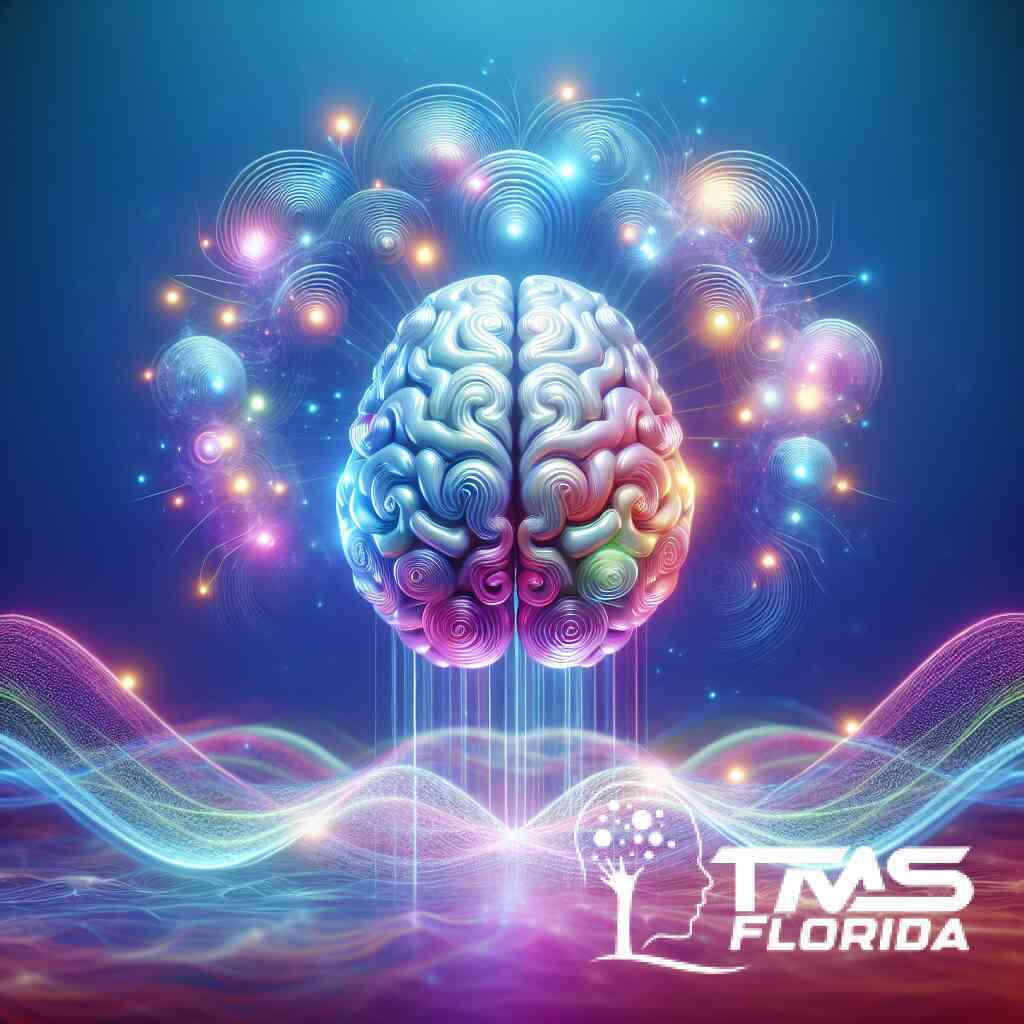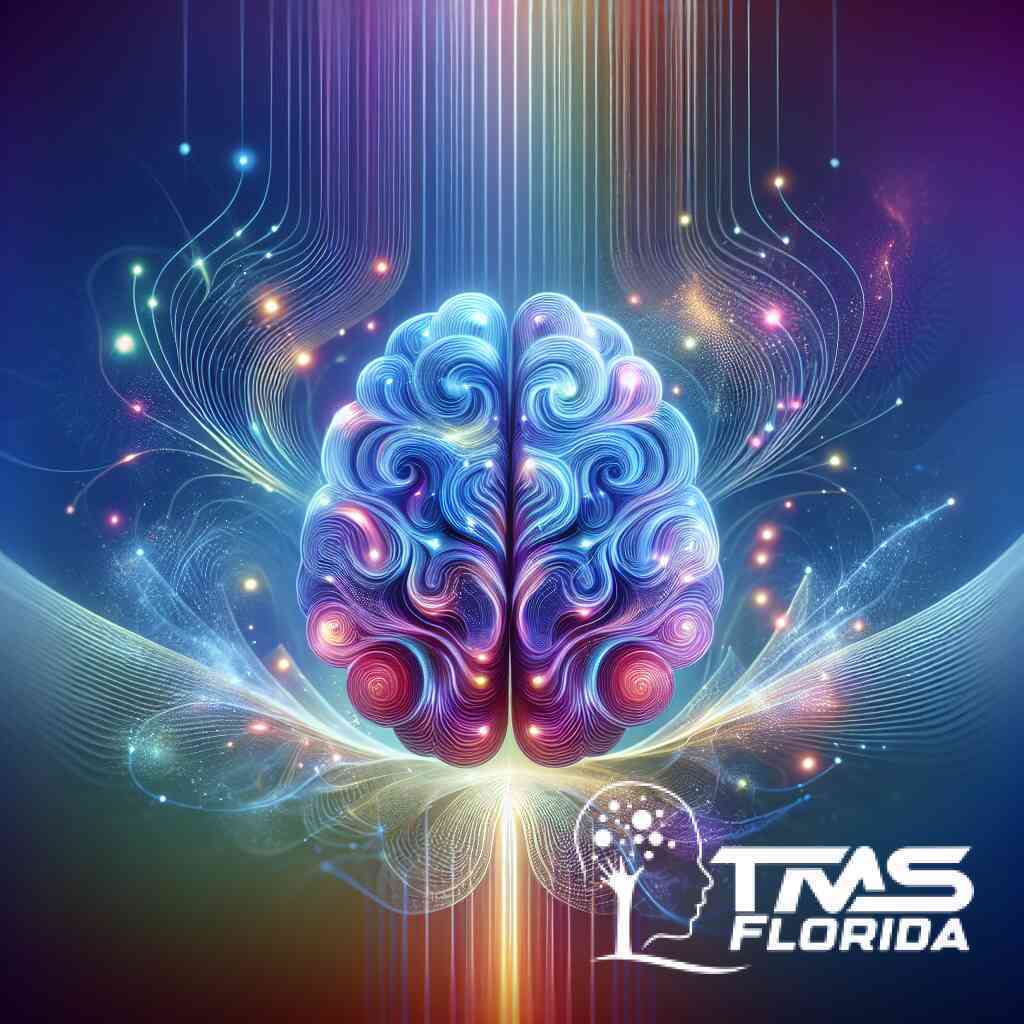
Comparing Neurostimulation Types: TMS Versus Others
Unveiling the Spectrum: Introduction to Neurostimulation
Diverse Pathways: An Overview of Neurostimulation Modalities
Neurostimulation encompasses a vast array of medical treatments harnessing electrical, magnetic, or chemical stimuli to alter the brain’s functionality. The modalities involved are diverse, ranging from deep brain stimulation to more modern, non-invasive techniques. Each modality carries unique attributes and application areas, distinguishing its capabilities in addressing neurological and psychiatric disorders. Among these, Transcranial Magnetic Stimulation (TMS) and Electroconvulsive Therapy (ECT) stand out, offering significant potential in reshaping therapeutic practices. As the understanding of neurostimulation treatments advances, today’s modalities are constantly evolving, opening doors to innovative mental health solutions and changing the landscape of psychiatric care.
The Rise of Non-Invasive Techniques: Redefining Mental Health Care
In recent years, non-invasive brain stimulation techniques have gained prominence due to their safety and effectiveness. Techniques like TMS have revolutionized how mental health issues such as depression and anxiety are treated. Unlike traditional methods, these non-invasive procedures do not require surgical intervention, thus minimizing risks associated with invasive treatments. At TMS Treatment Florida, these techniques are personalized to cater to individual patient needs. This personalization is pivotal in achieving better outcomes, highlighting the importance of such tailored interventions. Furthermore, these methods promise fewer side effects, making them appealing to a broader range of patients struggling with mood disorders.
From Depression to Pain: Exploring the Therapeutic Potential
Neurostimulation’s therapeutic applications extend beyond mental health, reaching into areas like chronic pain management and neurological rehabilitation. For instance, TMS has shown promise in treating major depressive disorder, offering hope where conventional pharmacological treatments may fall short. But the scope of neurostimulation isn’t just limited to depression-it promises breakthroughs for conditions such as OCD, anxiety, and even certain types of chronic pain. By tapping into the brain’s neuroplastic capabilities, these therapies can modulate neural pathways, fostering recovery and mental well-beingg. Top 5 Breakthroughs in TMS Therapy for 2024 This promise of broad-spectrum therapeutic potential underscores the transformative power of neurostimulation in the realm of contemporary medicine.
Transcranial Magnetic Stimulation: The Pinnacle of Innovation
The Science Behind TMS: A Brainwave Symphony
Transcranial Magnetic Stimulation (TMS) operates on a cutting-edge principle, where magnetic fields gently stimulate specific brain regions to alleviate symptoms of psychiatric disorders. Unlike its invasive counterparts, TMS does not necessitate surgical procedures, posing a lower risk for patients. The science rests on a solid foundation of neurology and neuroscience, effectively putting it at the forefront of non-invasive brain stimulation techniques. At TMS Treatment Florida, tapping into this symphony of brainwaves facilitates better understanding and treatment of complex mental health conditions. This scientific breakthrough signifies a renaissance in mental health solutions, highlighting the significant role of magnetic fields in promoting mental wellness.
TMS Treatment Benefits: Harnessing Magnetic Fields for Mental Health
TMS therapy stands out for its potential benefits, leveraging magnetic fields to target neurotransmitter activity in the brain with precision. Top Innovations in TMS by TMS Treatment Florida 2024 By modulating these intricate neural pathways, TMS therapy offers substantial advantages for mental health, particularly for disorders like depression and anxiety. Patients undergoing TMS experience a noticeable reduction in symptoms, often without the medication-related side effects. What Does TMS Treatment Mean for Depression? Its application extends beyond the scope of traditional therapies, presenting an advantageous TMS therapy comparison. This safe, non-invasive technique opens new avenues for individuals to manage their mental health, serving as a vital tool in the therapeutic landscape.
TMS Therapy and Cognitive Enhancement: Beyond Traditional Treatments
The scope of TMS therapy goes beyond mere symptom relief, extending into the realms of cognitive enhancement. This groundbreaking approach offers potential improvements in cognitive functions, such as memory and attention, benefiting individuals even in the absence of significant mental health issues. TMS therapy has shown promising results in refining cognitive processes by enhancing neural connectivity and plasticity. Such advancements pave the way for incorporating TMS in broader contexts, offering insights into its versatility. Through the exploration of Transcranial Magnetic Stimulation insights, the potential for optimizing cognitive capabilities is becoming increasingly evident, situating TMS as a pioneering force in mental health innovation.
Personalized Therapy in Florida: Tailoring TMS to Individual Needs
At TMS Treatment Florida, personalization underscores our therapeutic approach, ensuring that TMS therapy is meticulously tailored to individual patient needs. Recognizing the uniqueness of each patient allows for more precise targeting of neural areas, leading to enhanced efficacy and outcomes. This bespoke strategy ensures that the therapeutic interventions align seamlessly with the patient’s specific condition and health goals. Emphasizing personalized therapy significantly elevates the possibilities of recovery and mental wellness. As a result, TMS Treatment Florida is at the vanguard of providing holistic and customized care, empowering individuals to reclaim their lives and foster enduring mental health recovery.
Electroconvulsive Therapy and Deep Brain Stimulation: A Historical Perspective
An Electric Revolution: ECT in the Treatment of Severe Psychiatric Disorders
Electroconvulsive Therapy (ECT) has long been a cornerstone in the treatment of severe psychiatric disorders, such as major depression and bipolar disorder. The origins of ECT date back to the early 20th century, when it emerged as a revolutionary practice in psychiatric care. Despite initial controversies, ECT has proven highly effective, especially in cases where traditional medications fail. This treatment involves electrically induced seizures aimed at resetting the brain’s chemical balances. While the approach sounds intense, advancements in anesthesia and muscle relaxants have made ECT a much safer procedure today. It remains a vital option, particularly for treatment-resistant mental health conditions, underscoring its enduring relevance in modern psychiatry.
ECT’s efficacy often surpasses that of many other therapies, providing rapid relief for patients with severe, debilitating symptoms. However, it is not without challenges, including potential cognitive side effects such as memory loss. Despite these concerns, the benefits often outweigh the risks, especially considering the dire circumstances patients might face without it. Modern ECT practices have evolved significantly, integrating patient safety measures and minimizing adverse effects. This evolution highlights a profound understanding of ECT’s role in the psychiatric treatment landscape, paving the way for more nuanced and safe applications in today’s clinical settings.
Intricacies of Deep Brain Stimulation: Navigating the Brain’s Circuitry
Deep Brain Stimulation (DBS) represents another revolutionary technique in neurostimulation, targeting severe neurological and psychiatric disorders. DBS involves implanting electrodes within specific brain regions, producing electrical impulses that can modify abnormal brain activity. This intricate procedure has shown remarkable success in managing Parkinson’s disease, essential tremors, and even certain psychiatric conditions such as OCDDBS’s success relies heavily on precise electrode placement. This task requires unparalleled surgical skill and sophisticated imaging technology. Unlike ECT, DBS is a long-term solution, providing continuous symptom management with adjustable settings tailored to the patient’s evolving needs. Despite its invasive nature, the profound outcomes make DBS a compelling choice for individuals who are unresponsive to conventional treatments.
Recent advancements in DBS have expanded its application to a broader range of disorders, including depression and epilepsy. These promising developments reflect the ongoing journey to refine neurosurgical techniques and deepen our understanding of the brain’s complex circuitry. As DBS technology evolves, its potential to revolutionize psychiatric treatment becomes more apparent, marking a significant milestone in the field of neurostimulation. What Is the Future of Neurostimulation in Florida?
Comparing Efficacy: Where TMS Stands in Modern Psychiatry
In contrast to the invasive nature of DBS and the intensity of ECT, Transcranial Magnetic Stimulation (TMS) offers a gentler, non-invasive approach to treating psychiatric disorders. TMS’s ability to precisely target and modulate specific brain regions presents a distinct advantage over its counterparts. This precise modulation is particularly beneficial in depression treatments, where TMS has demonstrated significant efficacy without the cognitive side effects associated with ECT.
TMS’s non-invasive nature mitigates the risks and recovery time associated with ECT and DBS, making it a preferred choice for many patients. Although TMS may require multiple sessions to achieve optimal results, its gradual and non-disruptive approach aligns with contemporary mental health care priorities focused on safety and efficacy.
In evaluating the effectiveness of these treatments, TMS continues to emerge as a promising alternative for disorders that are traditionally treated with more invasive methods. By leveraging magnetic fields, TMS successfully bridges the gap between efficacy and patient comfort, reshaping the psychiatric treatment landscape and offering renewed hope for individuals seeking non-invasive neurotherapy innovations.
The Ketamine Conundrum: Exploring Alternative Treatments
From Anesthesia to Mood Disorders: The Evolution of Ketamine Therapy
Ketamine, initially developed as an anesthetic in the 1960s, has undergone a profound transformation in its role within modern medicine. What began as a general anesthetic has evolved into a potent tool for treating mood disorders. Research has unveiled its efficacy in rapidly alleviating symptoms of depression, marking a significant breakthrough in psychiatric care. Unlike traditional antidepressants, which may take weeks to deliver results, ketamine can provide relief within hours. This remarkable shift highlights ketamine’s versatility and potential as a quick-acting antidepressant, offering hope to individuals facing severe and treatment-resistant depression. However, its application is not without complexities, necessitating careful administration under medical supervision due to its potent psychoactive effects.
Ketamine vs TMS: Weighing the Options in Florida’s Treatment Landscape
In the ever-evolving landscape of depression treatment in Florida, the choice between ketamine and TMS presents a fascinating dilemma. Both therapies offer unique advantages and challenges, catering to diverse patient needs. Depression treatment comparison: Ketamine vs. TMS provides valuable insights into their distinct mechanisms. While ketamine acts swiftly to relieve depressive symptoms, TMS offers a non-invasive approach with fewer side effects. Patients seeking immediate relief may find ketamine appealing, whereas those prioritizing long-term benefits might opt for TMS. Understanding the nuances of each therapy is crucial in making informed decisions and guiding patients and clinicians in Florida ttowardthe most suitable treatment pathway. Comparing Ketamine and TMS for Depression in 2024
South Florida’s Ketamine Clinics: A New Frontier in Depression Therapy
South Florida has emerged as a dynamic hub for innovative depression treatments, with ketamine clinics gaining prominence in the region. These facilities offer specialized care, focusing on ketamine infusion therapy for individuals grappling with severe depression. Ketamine therapy solutions in South Florida provide accessible and effective alternatives for those who have not found relief with conventional treatments. Here, patients experience a nurturing environment tailored to their therapeutic needs, benefitting from the expertise of medical professionals well-versed in administering ketamine safely. This burgeoning trend in South Florida signifies a new frontier in depression therapy, showcasing ketamine’s potential to transform lives and offering a beacon of hope for individuals seeking rapid relief.
Integrating Ketamine and TMS: Synergistic Innovations in Mental Health
The integration of ketamine and TMS represents a forward-thinking approach itomental health treatment, combining their respective strengths to enhance therapeutic outcomes. By leveraging ketamine’s rapid antidepressant effects alongside TMS’s long-term benefits, clinicians are exploring synergistic innovations to optimize patient care. This combined strategy aims to address a broader spectrum of symptoms, offering a more comprehensive solution for individuals with complex mood disorders. Such integration not only expands the therapeutic arsenal but also illustrates the potential for personalized treatment plans tailored to individual patient profiles. As mental health care evolves, this dual approach underscores the commitment to advancing therapeutic innovations, paving the way for more effective and holistic mental health solutions.
Towards a Brighter Future: Embracing Cutting-edge Mental Health Treatments
Alternative Mental Health Solutions: The Florida Perspective
Florida has emerged as a hotspot for alternative mental health solutions, offering an array of innovative treatments that challenge traditional approaches. With a focus on non-invasive and holistic therapies, the region champions advancements such as TMS, ketamine, and psychedelic therapies, broadening the spectrum of care for mental health disorders. Facilities across the state, including TMS Treatment Florida, prioritize alternative depression treatments in Florida, providing cutting-edge options for those resistant to conventional medicine. This dedication to pioneering mental health care reflects Florida’s commitment to modernizing treatment protocols and enhancing patient experiences through evidence-based innovations.
The Role of Neuromodulation in Psychiatric Recovery
Neuromodulation has become an integral component of psychiatric recovery, offering powerful tools to address complex mood and anxiety disorders. This therapeutic approach employs targeted stimulation to alter neural activity, promoting long-term wellness and resilience. Techniques like Transcranial Magnetic Stimulation (TMS) exemplify neuromodulation’s potential, impacting brain plasticity and reinforcing adaptive patterns essential for recovery. TMS stands out with its ability to offer personalized interventions, addressing the unique neural profiles of individuals. At TMS Treatment Florida, the focus on neuromodulation underscores the importance of leveraging advanced technologies to facilitate breakthrough outcomes in psychiatric care.
Breaking Barriers: Non-Invasive Brain Stimulation in Everyday Practice
In recent years, non-invasive brain stimulation techniques have bridged the gap between clinical research and everyday medical practice, revolutionizing mental health treatments. These methods, including TMS and tDCS, provide effective solutions without the risks associated with surgical interventions, offering hope to patients reluctant to pursue invasive procedures. TMS, in particular, has seen widespread acceptance for its efficacy and safety profile, becoming a cornerstone in treating depression and other mood disorders. By integrating non-invasive brain stimulation techniques, practitioners are breaking down barriers, making mental health care more accessible and less intimidating for individuals seeking relief from psychiatric conditions.
Advancing Mental Health: The Promise of TMS and Beyond
The advancement of mental health treatments hinges on innovative therapies like Transcranial Magnetic Stimulation (TMS), which continue to push the boundaries of what’s possible in psychiatric care. TMS offers a glimpse into the future of personalized medicine, allowing for targeted interventions that cater specifically to the neural intricacies of each patient. The possibilities extend beyond symptom management, with ongoing research exploring TMS’s roles in cognitive enhancement and neurological rehabilitation. As we look towards this forward-thinking paradigm, the potential for TMS and similar technologies to transform mental health treatment is monumental, promising a future where mental wellness is achievable for all. Embedded within this vision is the commitment of institutions like TMS Treatment Florida to spearhead South Florida’s mental health innovations, ensuring that the promise of advanced mental health care is realized.
Pioneering a New Era: Conclusion
Reflections on the Evolution of Neurotherapy
The landscape of Neurotherapy has undergone a remarkable transformation, showcasing tremendous advancements over the years. From traditional electroconvulsive therapy (ECT) to modern techniques like Transcranial Magnetic Stimulation (TMS), the journey has been one of innovation and promise. TMS stands out, marrying effectiveness with safety and offering new avenues for those grappling with psychiatric disorders such as depression and anxiety. The strides made in non-invasive procedures underscore a shift towards patient-friendly and efficacious treatments, fostering better outcomes and enhancing mental wellness without the trauma of invasive interventions.
Florida has been at the forefront of these changes, embracing treatments like Psilocybin Treatment in Florida, showcasing its commitment to alternative mental health solutions. This evolution reflects a broader acceptance and acknowledgment of diverse therapeutic modalities, fostering a more inclusive and effective approach to mental health care. As we reflect on these advancements, it’s clear that the realm of nNeurotherapyis positioned at the cusp of a revolutionary era in psychiatric care.
The Road Ahead: Future Directions in TMS and Neurostimulation
As we look to the future, the potential of TMS and other neurostimulation techniques promises a horizon rich with possibilities. It solidifies the impact of TMS as a staple in mental health treatment. The adaptability and effectiveness of TMS offer hope for expanding its role beyond mood disorders to encompass cognitive disorders, chronic pain, and more nuanced areas of neurological rehabilitation. Moreover, with ongoing research and innovations, emerging neuro therapies will likely continue to challenge traditional paradigms, creating a multifaceted therapeutic landscape.
Within Florida, clinics like TMS Treatment Florida are poised to lead these advancements, ensuring that cutting-edge treatments remain accessible and effective for all who seek them. This promising future underscores the importance of continued exploration and the adoption of personalized, patient-centric approaches in neurostimulation. As this technology integrates further into standard practice, the transformative potential of these therapies will mark a new chapter in mental health care, empowering individuals to achieve profound and lasting mental wellness. This evolution is not merely a shift in treatment modality but a fundamental change in how we perceive and address mental health as a society.
Frequently Asked Questions
Question: How does Transcranial Magnetic Stimulation therapy at TMS Treatment Florida compare to traditional treatments like Electroconvulsive Therapy in addressing psychiatric disorders?
Answer: At TMS Treatment Florida, we pride ourselves on offering Transcranial Magnetic Stimulation therapy as an advanced, non-invasive alternative to traditional treatments like Electroconvulsive Therapy (ECT). TMS therapy uses magnetic fields to gently stimulate specific areas of the brain, offering significant advantages for mental health issues such as depression and anxiety. Unlike ECT, TMS does not involve inducing seizures, thus avoiding the potential cognitive side effects like memory loss. Our approach focuses on effectiveness and patient comfort, providing a safe and gentle method to improve mental health outcomes. What Distinguishes TMS from Traditional Therapies in Florida?
Question: What makes TMS therapy a preferred choice for mental health recovery compared to other neurostimulation techniques available in Florida?
Answer: TMS therapy has become the preferred choice for mental health recovery due to its non-invasive nature and precision in targeting neural pathways without the need for surgery. At TMS Treatment Florida, our therapy sessions are personalized to cater to individual patient needs, enhancing the efficacy and outcomes of the treatment. Compared to other neurostimulation techniques like deep brain stimulation, TMS offers a safer option with fewer risks and complications, making it an attractive choice for patients seeking an alternative to traditional medication or invasive procedures. Defining Neurostimulation: TMS Treatment Florida’s Take
Question: In the blog post “Comparing Neurostimulation Types: TMS Versus Others,” how does the integration of TMS and ketamine therapy provide a comprehensive solution for mood disorders?
Answer: The integration of TMS and ketamine therapy offers a synergistic approach to treating complex mood disorders by combining the rapid relief properties of ketamine with the long-term benefits of TMS. At TMS Treatment Florida, we recognize the potential of this integrated strategy to address a broader spectrum of symptoms, offering a comprehensive and personalized treatment plan. Ketamine Versus TMS: Insights from TMS Treatment Florida This combination enhances the therapeutic arsenal, providing patients with more effective and holistic mental health solutions, especially for those with treatment-resistant depression or other severe mood disorders. Unveiling Ketamine Therapy Insights with TMS Treatment Florida
Question: What benefits can patients expect from TMS therapy regarding cognitive enhancement and overall mental wellness?
Answer: TMS therapy not only relieves symptoms of mental health disorders but also contributes to cognitive enhancement by improving functions such as memory and attention. At TMS Treatment Florida, we employ advanced brainwave modulation techniques that have shown promise in refining cognitive processes. This approach aids in enhancing neural connectivity and plasticity, contributing to overall mental wellness. Patients can expect improvements not only in their mental health conditions but also in their cognitive performance, making TMS a comprehensive treatment option. Top 5 TMS Innovations by TMS Treatment Florida in 2024 for Mental Wellness
Question: How does TMS Treatment Florida’s focus on personalized therapy enhance the effectiveness of TMS for individuals suffering from psychiatric disorders?
Answer: Personalized therapy is a cornerstone of our treatment philosophy at TMS Treatment Florida. We tailor our TMS therapy sessions to the unique needs of each patient, ensuring precise targeting of neural areas corresponding to their specific condition. This individualized approach maximizes the therapy’s efficacy and enhances recovery outcomes, aligning with each patient’s health goals. Exploring the Science of TMS Therapy in South Florida Now By offering bespoke treatment plans, we empower individuals to reclaim their lives and achieve lasting mental health recovery, setting us apart as leaders in personalized mental health care.


